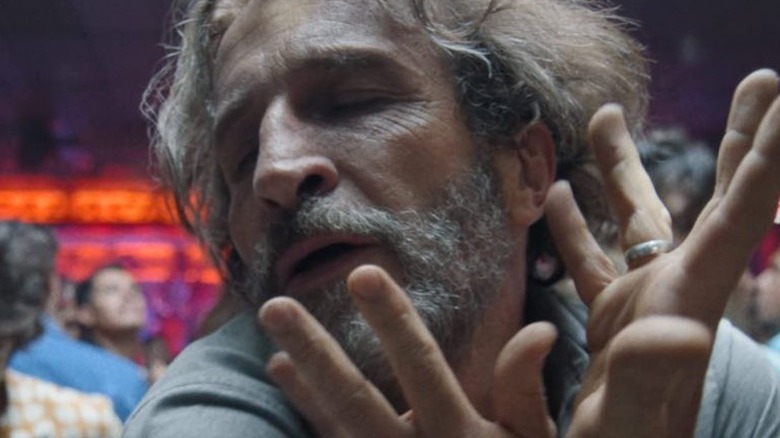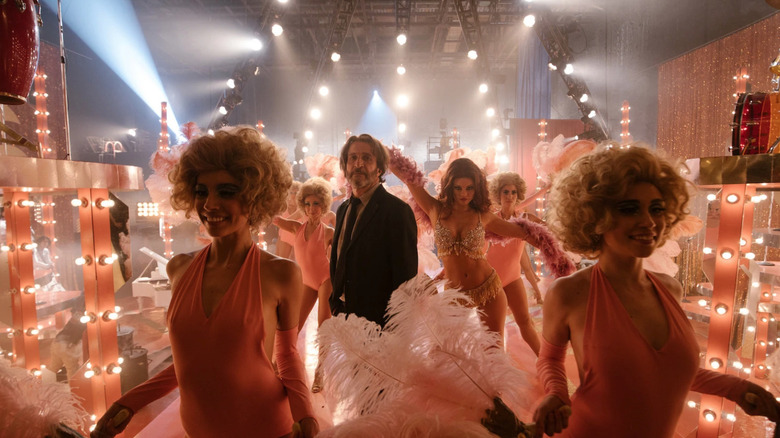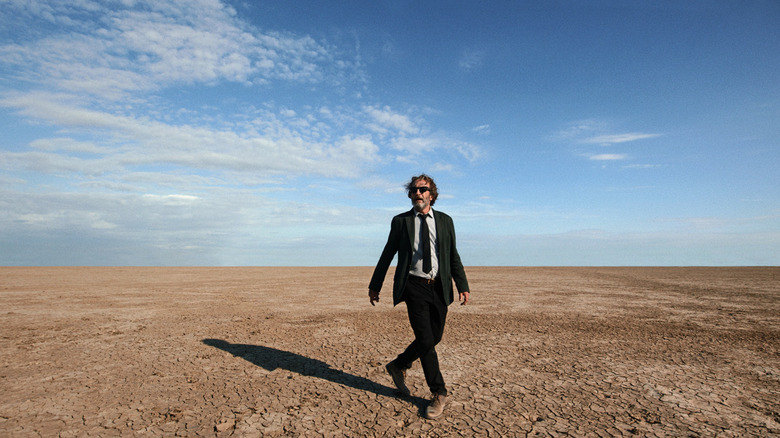Bardo Review: Extreme Beauty Meets Exhausting Boredom
- Gorgeous cinematography
- Personal reflection on immigrant identity
- Occasionally funny
- Way too long for something this structureless
- Self-indulgent about its own self-indulgence
- Gets pretty boring
The 2022 awards season has been filled with extremely long movies. With some of these films, like Steven Spielberg's "The Fabelmans" (151 minutes), that time flies by. Others, like Todd Field's "TÁR" (158 minutes), make you feel that length purposefully, constructing meticulous rewarding slow-burn experiences. And then there are those, like Ruben Östlund's "Triangle of Sadness" (147 minutes), where the length actively hurts material that would have been better served in a more compact form.
Alejandro G. Iñárritu's "Bardo, False Chronicle of a Handful of Truths" (one of the year's longest movie titles) premiered at the Venice Film Festival in a 174-minute cut, and the general reaction from there and the Telluride Film Festival indicated it was in the "way too long" category of long movies. He's since re-edited the film, which opened in select theaters on November 4 and will stream on Netflix starting December 16, to be 22 minutes shorter. Unfortunately, the 152-minute cut is still something of a slog to get through.
It's all the more frustrating because many elements of "Bardo" are genuinely great. There are images that are unforgettable, ideas that are fascinating, gags that are funny, and sequences that are truly transportive, but they're all caught in film with no sense of structure and too many diversions that don't work.
The weirdness can be captivating
"Bardo" starts off the way Iñárritu's Best Picture winner "Birdman or (The Unexpected Virtue of Ignorance)" ends: A man flies offscreen. In "Birdman," we knew the man was flying from someone else's reaction; in "Bardo," we see the man's shadow from a first-person perspective. Or is there a man at all? This is the type of film where shadows can move on their own without people attached to them.
This opening shot is followed by a scene in which a woman (Griselda Siciliani) gives birth, only the doctor's to say that the world is "too f***ed up" and be pushed back inside its mother's body. When she leaves the hospital bed, a long umbilical cord trails behind her. It's a surreal joke, with even more absurd follow-ups later when the baby pops its head out at inopportune times, but it also becomes clear this joke is a metaphor for something very serious — and possibly very personal.
Amidst this magical realist "false chronicle," the implication is that "Bardo" contains more than "a handful of truths" about the film's auteur. It's hard not to read the film's viewpoint character Silverio Gacho (Daniel Giménez Cacho) as being based on himself. There's the obvious physical resemblance, the fact they're both filmmakers (though Silverio makes documentaries and "docufiction" versus Iñárritu's explicitly fictionalized dramas), the traveling back and forth between the United States and Mexico, and a whole web of complicated thoughts on art, race, class, and life itself that feel like Iñárritu's own.
Though "Bardo" lacks much in the way of a plot beyond Silverio traveling between Mexico and Los Angeles in preparation to receive an award, I was initially onboard with the film's experimental journey for the first hour or so. Much of the credit is due to Darius Khondji's absolutely beautiful cinematography, which makes the fantastic believable and reality feel like a dream. I also appreciated the film's flourishes of humor (one running gag dealing with narration consistent made me laugh) and its thoughtful reflections on what it means to be caught between two places that you simultaneously love and hate.
Despite all this, "Bardo" eventually lost me. To explain why will involve discussing some significant details for the latter portion of the film, so even though "Bardo" doesn't really have a plot that can be spoiled, consider this your spoiler warning.
The point Bardo lost me
Somewhere in the middle of the movie's extensive runtime, Silverio is at a party where he runs into a TV talk show host whom he previously skipped out on being interviewed by. Silverio asks the talk show host what he thought of his latest documentary. The talk show host not only makes the same accusations of pretension and self-indulgence that critics have made about Iñárritu throughout his career, but from his descriptions of the documentary's content, it sounds like the "documentary" is "Bardo" itself (at least what we've seen up to this point).
It's here the boundaries between Silverio and Iñárritu seem to dissolve completely, and it's also here where a film that's mostly seemed thoughtful and self-analytical begins to truly escalate into actual self-indulgence. Some might compare this scene to the one in "Birdman" where Riggan fights with a critic from The New York Times, but for me, the "Birdman" scene works because it's a fight between two similarly flawed characters, whereas the "Bardo" scene is just the director's own avatar literally shutting up the haters.
There are moments after this scene where "Bardo" regains its ability to mesmerize (a David Bowie dance sequence, some eerie evocations of death and colonialism, a darkly satirical scene at airport security), but it's here where this ambitious film truly starts to run thin. It ends up restating a lot of the same points, and even some of the abstractions start to feel overexplained. Making a movie without a traditional plot is one thing, but "Bardo" just ends up feeling structureless. Silverio might have clever reactions to situations, but he's never an active protagonist, so his journey just feels like meandering. The only thing the movie seems to be actively building to (the awards ceremony) is an anticlimax, and where it ultimately goes instead ends up recalling the interminable Sean Penn-starring segments of "The Tree of Life."
It's possible there's something I missed that makes "Bardo" actually great as opposed to a mess with aspects of greatness. I'm sure people who know more about Mexican history and get more of the references will see other layers I didn't get. This could be a movie we all end up reevaluating more positively in a decade or so. For now, though, I'm left exhausted by "Bardo" and sad that something with so many interesting elements could add up to a boring whole. Those positive aspects are almost enough for me to recommend it to serious cinephiles, but in the end, I'd consider it a let-down.
"Bardo" is now playing in theaters and will stream on Netflix on Friday, December 16.


